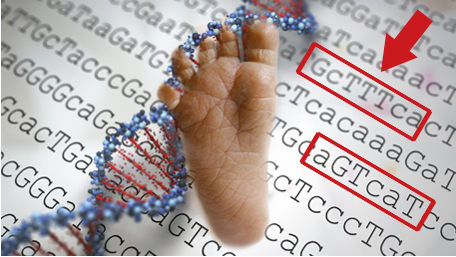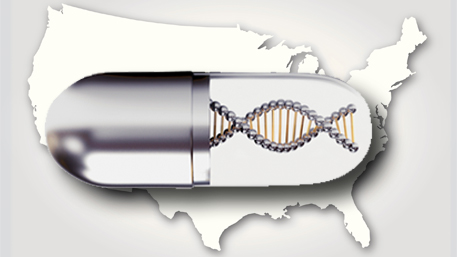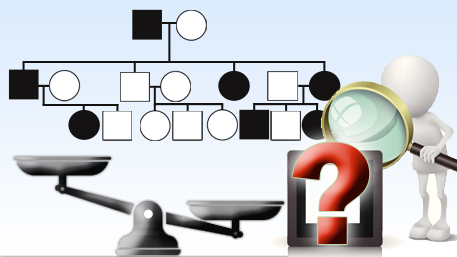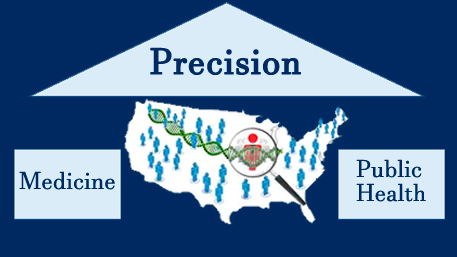Genomics and Precision Health Blog – Archive Posts
From Guthrie to Genomes: Expanding Bioinformatic Capabilities in Newborn Screening Programs

Through a funding opportunity from CDC’s Office of Genomics and Precision Public Health in collaboration with the Office of Advanced Molecular Detection, CDC’s Newborn Screening and Molecular Biology Branch will conduct a two-year project to develop a streamlined national newborn screening (NBS) bioinformatics pipeline to help in expanding the use and utility of gene and Read More >
Posted on byAssessing Pharmacogenetic Variation in the United States to Enhance Health Equity of Pharmacogenetic Testing

CDC’s Genetic Testing Reference Material program (GeT-RM), in the Division of Laboratory Systems will conduct a 2-year project to test 5000 DNA samples from the population-based National Health and Nutrition Examination Survey (NHANES) to determine the allele frequencies of 970 unique haplotypes in 150 pharmacogenes selected because they have high clinical annotation levels of evidence Read More >
Posted on byUsing Immunogenetics in the Fight Against Ebola Virus Disease

CDC’s Viral Special Pathogens Branch focuses on viruses causing hemorrhagic fevers and requiring the highest levels of biological containment. Within VSPB, the Molecular Pathogenesis and Therapeutics Team conducts basic and applied research to understand how these viruses interact with our bodies to cause disease, and how this knowledge can be used to develop and evaluate Read More >
Posted on byEpigenetics: An Emerging Tool for Health Equity Science

A recent review provides recommendations to improve the scientific investigation of the associations between epigenetic markers, socioeconomic status, and adverse health outcomes. Health equity means that everyone has the opportunity to be as healthy as possible. Health equity science studies the association between social determinants of health (SDOH) and adverse health outcomes. SDOH refer to Read More >
Posted on byArtificial Intelligence in Medicine and Public Health: Prospects and Challenges Beyond the Pandemic

Though still in its infancy as a field, artificial intelligence (AI) is poised to transform the practice of medicine and the delivery of healthcare. Powered by breakthroughs in machine learning (ML) algorithms, enhanced computing power, and increasing data volume and storage capacity, AI has made noteworthy advances over the past decade across many medical subspecialties. Read More >
Posted on byRare Disease Day 2022: The Evolving Impact of Genomics and Precision Health

In celebration of Rare Disease Day 2022, we reprint excerpts of four previous blogs. Rare Diseases, Genomics and Public Health: An Expanding Intersection (February 17, 2016) Rare Disease Day is celebrated on the last day of February each year. On that day, millions of patients and their families around the world share their stories in order Read More >
Posted on byUsing Pharmacogenetics to Enhance Tuberculosis (TB) Treatment

Through a funding opportunity from CDC’s Office of Genomics and Precision Public Health in collaboration with the CDC Office of Advanced Molecular Detection, CDC’s Division of Tuberculosis Elimination will conduct a 2-year project to assess relationships between pharmacogenetics (PG), TB drug exposure, relevant treatment outcomes, and safety. Researchers will use information collected in an international phase Read More >
Posted on byPrecision Public Health in Action: New CDC Pilot Projects Integrate Human Genomics into Public Health Surveillance and Applied Research

In collaboration with the CDC Office of Advanced Molecular Detection, we recently launched a new, five-year initiative to strengthen public health capacity by introducing elements of human genomics into both public health surveillance and applied research. We report here on the successful launch of one of the initiative’s components. The Office of Genomics and Precision Public Read More >
Posted on byEquitable Implementation of Cascade Testing for Genetic Disorders: Where are We?

Testing relatives of individuals with genetic disorders, a process known as cascade testing or cascade screening, is critical for identifying those needing health services that can prevent morbidity and mortality. Yet, cascade testing is poorly implemented in clinical practice. For example, there are several genetic conditions with CDC tier 1 evidence-based recommendations for cascade testing, Read More >
Posted on byFrom Precision Medicine to Precision Public Health: The Dialogue Continues

A recent Nature article discusses the concept of precision public health (PPH) and raises concerns that too much emphasis on data and technology is “diverting attention away from regular public health.” In this post, we advance this important dialogue by focusing on two distinct components of PPH: its role in reaping the population health benefits Read More >
Posted on by

